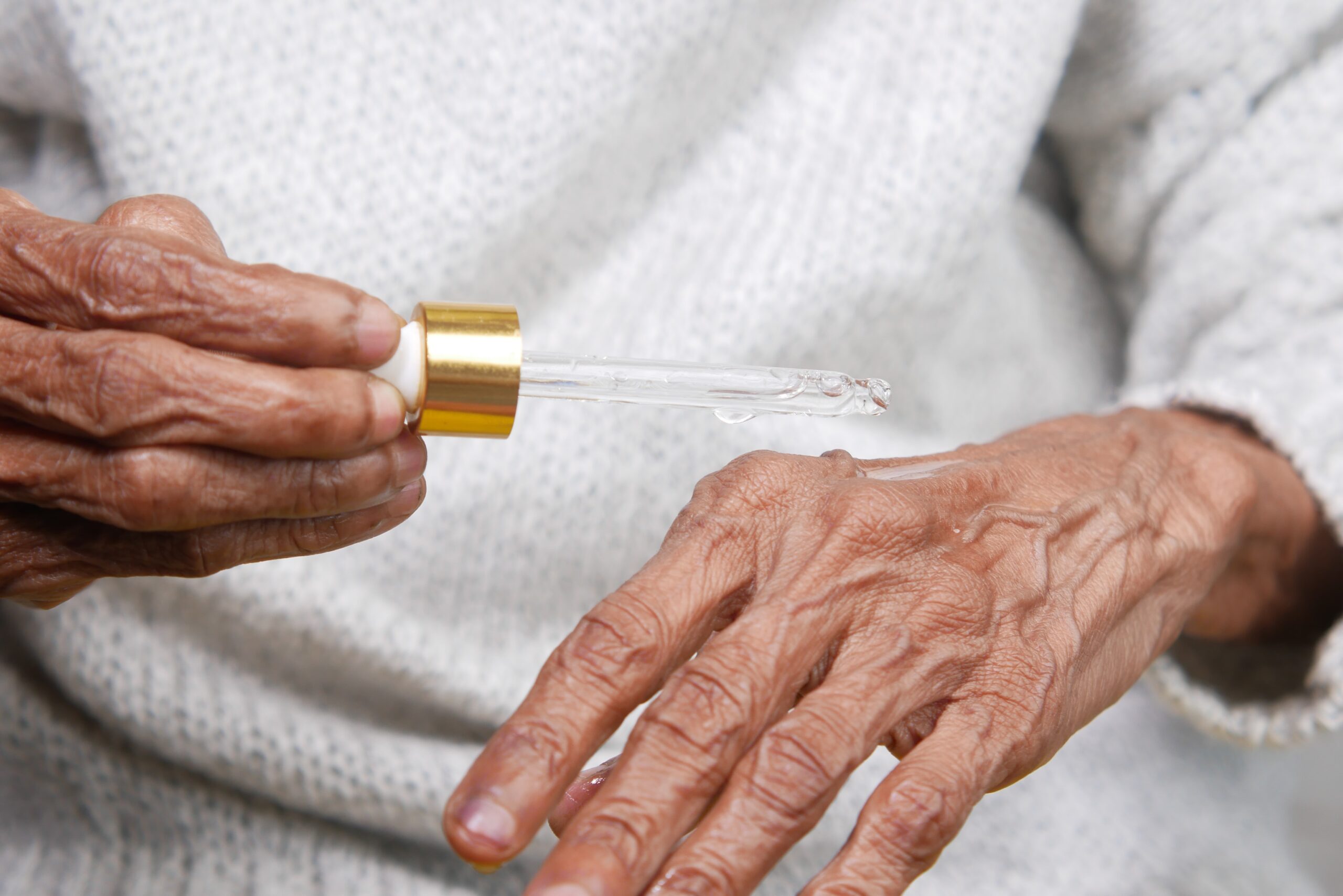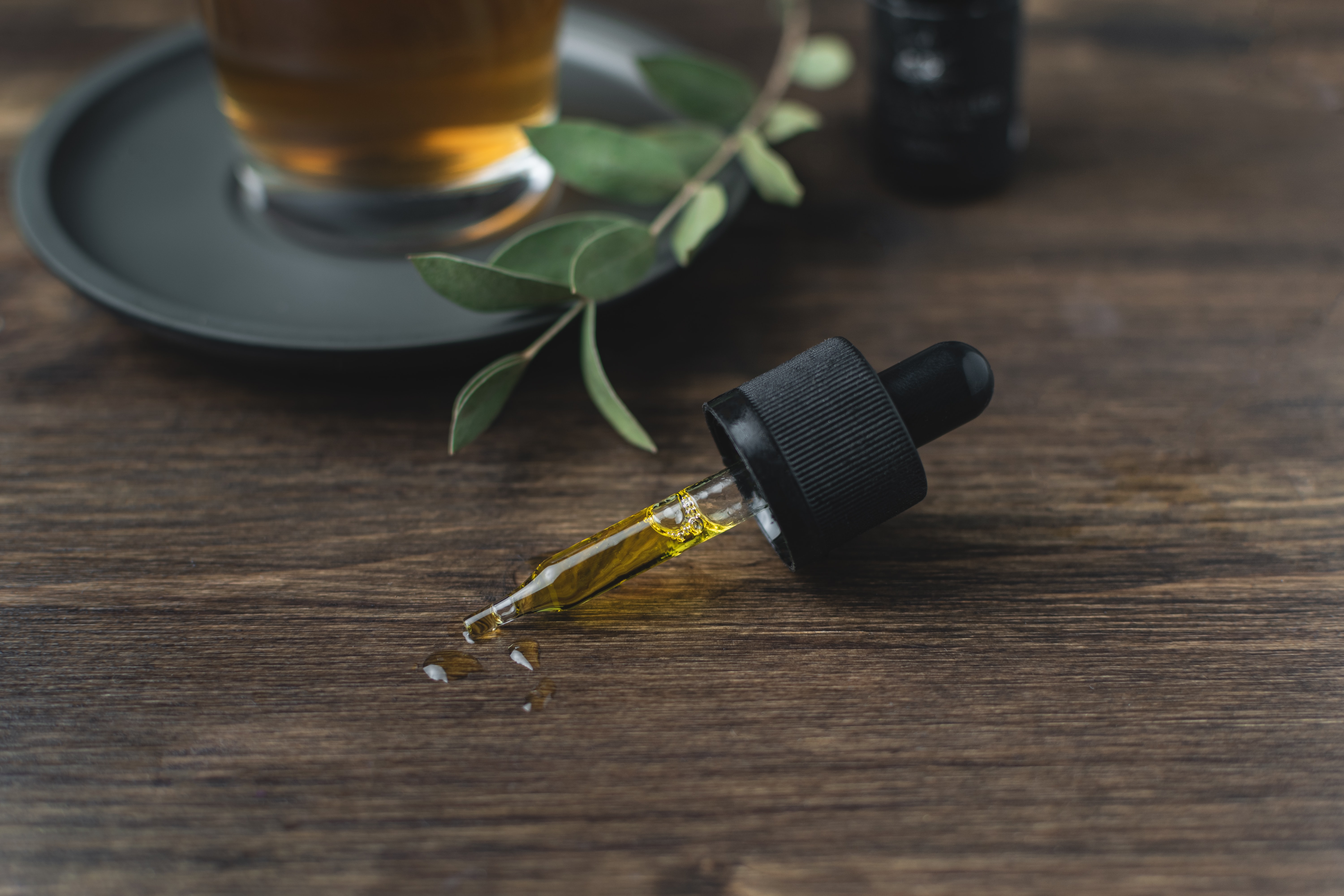Did you know that around 58.5 million Americans have a form of arthritis, making up almost a quarter of the entire population of our country. Causing joint pain and stiffness that can interfere with mobility, arthritis can be a debilitating disorder that causes enormous hardship if it becomes severe enough.
The good news is that treatments are out there, and there is more research going into understanding arthritis than ever before. That being said, we’re starting to see a trend of patients taking matters into their own hands by turning to holistic options that can address the symptoms in a natural way. And, one of the most popular options on the natural market is – you guessed it – cannabidiol (CBD).
What is Arthritis?

Arthritis is a chronic inflammatory condition in which the tissue surrounding the joints maintains a base level of inflammation. It can affect one or multiple joints depending on the type of arthritis and the amount of damage done to individual joints of the body. Arthritis results in pain, especially when the joints are in motion, and can make it difficult to use the joints. Severe cases of arthritis can cause crippling pain, and even cause a full lack of mobility within at least one joint. Now, there are two types of arthritis:
Type #1: Rheumatoid Arthritis
An autoimmune condition that results from inflammation within the body, as the immune system attacks healthy joint tissue. This will cause several joints to be chronically inflamed, and usually reflects an issue with the immune system.
Type #2: Osteoarthritis
Alternatively, osteoarthritis affects one or multiple joints but is caused by structural damage done to the surrounding tissue, as opposed to an autoimmune disorder.
What Causes Arthritis?
There are numerous factors that can cause arthritis to develop. Here are the most common causes. It’s important to note that arthritis is most commonly associated with older generations, but it can affect people at any age.
Cause #1: Wear and Tear
It is normal to develop arthritis with age, as the joints naturally wear down due to decades of overuse. Many elderly people have arthritis in multiple areas of the body.
Cause #2: Sustaining Some Sort of Injury
If a person has injured a joint, they may be left with arthritis permanently due to changes in the structure of the joint tissue. This is common among those who have had sports injuries and have been in car accidents.
Cause #3: Autoimmunity
Rheumatoid arthritis is caused by an autoimmune disorder and tends to imply that the immune system is not functioning properly. Poor diet, chronic stress, genetic disorders, and chronic illness can all increase the risk of rheumatoid arthritis by depleting the body’s immune system.
Cause #4: Stress
Stress can influence inflammation levels in the body, and many arthritis sufferers report that their arthritis flares up when they’re under particularly high amounts of stress. Cortisol, the “stress hormone”, can lead to a buildup of inflammation within the tissue of the body.
Cause #5: Genetics
Arthritis can be passed down through members of the same family, which could imply that some people are genetically prone to having weaker joints, or autoimmune conditions that lead to an immune system that attacks the body’s joint tissue.
Cause #6: Lifestyle and Diet
A lot of choices that we make each day play a role in our likelihood of developing arthritis later on. Some habits that can increase our arthritis risk include:
- Dietary deficiencies that deplete the body of nutrients that repair the joint tissue
- Poor posture that causes the joint tissue to break down due to misalignment of the body
- Diets high in sugar that leave the body in a high state of inflammation
- Improper form in exercise that puts unnecessary burden on certain joints
- Jobs that require repetitive motions of specific joints of the body
- A sedentary lifestyle that decreases joint mobility and resilience
How is Arthritis Usually Treated First?
Before arthritis can be treated, it must be diagnosed by a medical professional who can examine the joints of the body to determine the underlying cause of the pain and stiffness that the patient feels. If arthritis is diagnosed, there are two courses of action depending on the type of arthritis:
- Rheumatoid arthritis could be treated by immunosuppressant drugs that suppress the immune system’s ability to attack joint tissue.
- Osteoarthritis sufferers may be given anti-inflammatory drugs that bring down inflammation of the joint tissue. Severe arthritis sufferers may require surgery should they lose full mobility of their joints, with hip replacements being the most common type of surgery performed on those who have arthritis.
Will CBD Be Able to Help Arthritis Sufferers?

For those who don’t know, cannabidiol is the leading compound in the hemp plant that, as a cannabinoid, attaches itself to cannabinoid receptors found throughout the body, and this process enables regulation of individual bodily processes to occur to generally promote equilibrium throughout every bodily system. Administered either orally or topically, CBD can effectively attach to cannabinoid receptors in the joint tissue that balance localized inflammatory response, thus bringing down inflammation levels should they be too high and therefore symptomatic.
In fact, promising studies have shown that cannabidiol might be useful in the treatment of arthritis in particular, effectively lowering inflammation levels to support more functional joints that experience lower pain levels and increased mobility.
Using CBD for Arthritis: What You Specifically Need to Know
To fully unlock the anti-inflammatory potential of cannabidiol, we need to be aware of how we create a routine with this cannabinoid. Essentially, paying close attention to the products we purchase as well as how they’re being used.
- Brand Reputation Matters: First, always buy your CBD from a trusted brand that has lots of positive reviews and does third-party lab-testing on all products, to verify authenticity, potency, purity and general quality. Avoid “cheap” brands and CBD products you’d find at the local convenience store, instead sticking to reputable online retailers.
- Look for High-Strength Products: As you might imagine, CBD products that have more milligrams of cannabidiol extract are more likely to be effective thanks to a stronger concentration of the active ingredient. For oral products, we recommend at least 30mg per day for arthritis, and for topicals, choose a formula that has at least 100mg per ounce of product.
- Consider a Topical and an Oral Product: We recommend using both an oral product as well as a topical. Oral products provide anti-inflammatory properties throughout the entire bodily system, while topical products allow you to target the most affected areas of the body in a more concentrated, localized way.
- Be Consistent with Your Dosing: It’s always preferable to take or use CBD each day, because the cumulative nature of cannabinoids in the body means that more consistency yields better, stronger effects over time.
- Watch Out for Interactions: It’s always best to talk to your doctor before trying to treat your arthritis at home. Consult them if you’re on any medications, as certain medications including pain medications and steroids can interact with CBD, as CBD can suppress the enzyme needed to break down common medications, known as CYP3A4.
Kronic Releaf CBD Products are Worth Trying for Arthritis Symptoms
Arthritis can be incredibly detrimental to someone’s livelihood, but that doesn’t mean that sufferers need to be in debilitating pain for the rest of their lives. There are effective treatments, and CBD may be something that can be used alongside whatever your doctor recommends. We recommend our Releaf Spray, which is a 500mg topical that absorbs quickly into the body, alongside our CBD oils which provide the entire body with a generous 33mg of full spectrum hemp extract per serving.

